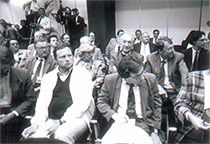Be the leading advocate for commercial broadcasting in the European Union on all platforms by supporting policies that promote:
Promote and defend the ACT Vision in EU legislative discussions and EU media by responding to public inquiries, proactively creating and disseminating industry information and positions as well as organising physical and online policy discussion platforms to promote the collective interests of its Members.
More specifically, the purpose of the ACT is to promote the collective interest of its Members by:
The Association of Commercial Television in Europe represents the interests of leading commercial broadcasters in 37 European countries. The ACT member companies finance, produce, promote and distribute content and services benefiting millions of Europeans across all platforms.
At ACT we believe that the healthy and sustainable commercial broadcasting sector has an important role to play in the European economy, society and culture.
Our role is to protect and to promote the interests of the European private broadcasters. We engage with the EU institutions to achieve a balanced and appropriate regulatory framework which will encourage further investment and growth in our sector. This will allow the commercial audiovisual industry to continue to do what we do best – getting great content to viewers.

Press conference in 1989 announcing the launch of the ACT
The ACT was set up in 1989. Back then, there were fewer than 100 broadcasters in the then twelve Member States of the European Community. With the occasional exception, most European countries had only ended the state monopoly of television broadcasting in the mid-1980s. The ACT had five founder members. As commercial television models proved popular with viewers, so many new channels were launched and ACT membership grew quickly. Yet some of the key regulatory issues were already becoming apparent, with European rules adopted in 1989 for the first time on transfrontier television, advertising, programme quotas, and then separate rules negotiated for copyright in the early 90s.